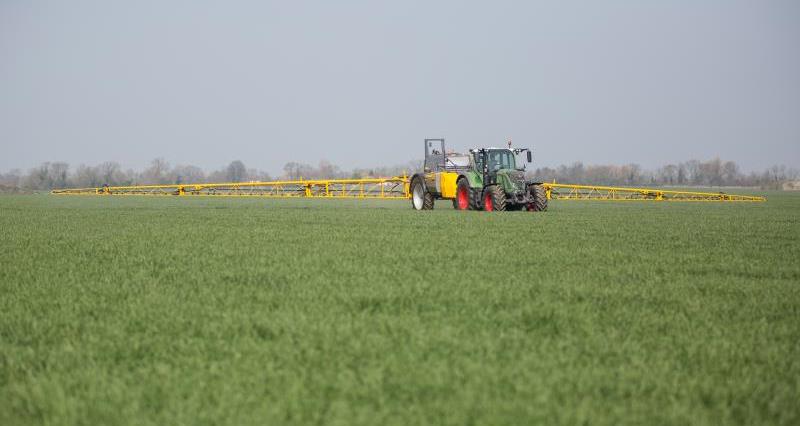‘The impact of a glyphosate ban on the UK economy’, produced by Oxford Economics, says a ban on glyphosate would lead to a sharp decline in the production of wheat and oilseed rape which would, in turn, impact prices and land use patterns and lead to a decline in farm profits.
A ban would reduce agriculture’s contribution to UK GDP by an estimated £930 million. It would also have knock-on effects on employment and tax revenues across the country, with an estimated £193 million reduction in tax revenues, the report says.
‘Glyphosate plays a vital role’
NFU Vice President Guy Smith said: “Glyphosate plays a vital role in agriculture in the UK and around the world. It has been used safely for more than 40 years and poses no risk to human health if used correctly. This report shows what the impact of a ban would be, both economically and in production terms.
“Regulatory bodies around the world have looked at all the scientific evidence and reached the same conclusion on its safety, as has the European Chemicals Agency (ECHA) which concluded earlier this year, following a comprehensive review, that glyphosate shouldn’t be classified as a carcinogen.
“We can see no reason why glyphosate should not be reauthorised for a full 15-year term.”
NFU Vice President Guy Smith
“We can see no reason why glyphosate should not be reauthorised for a full 15-year term. We will continue to work with our members and with other European farming unions to ensure the facts about glyphosate’s safety and importance are heard in the run-up to this crucial decision.”
Ian Mulheirn, Director of Consulting at Oxford Economics, said: “Our report’s findings are very clear – a glyphosate ban will negatively impact UK GDP and agriculture, at a time of real uncertainty for British farmers.
“If glyphosate was not approved for use in the UK but remained available in the rest of the world, this would place domestic production at a considerable disadvantage. An EU-wide ban could even push up food prices for consumers.”
Key statistics from the report:
- £930 million reduction in contribution of the agriculture sector to UK GDP if glyphosate is banned
- £193 million estimated reduction in tax revenues generated by agriculture and its supply chain
- 15% predicted reduction in total cereal production in the UK if glyphosate is banned
- 20% predicted reduction in UK wheat production
- 37% predicted reduction in UK oilseed rape production
- 5% predicted reduction in UK barley production
